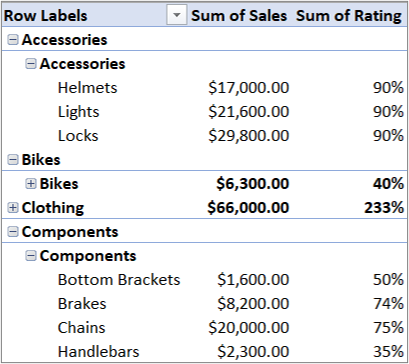Using LIKE , IN, BETWEEN, and wildcards to match multiple values in SQL Real-world data is often messy, so we need messy ways of matching values , because matching only on exact values can unintentionally filter out relevant data. I came across a forum post where someone wanted to use SQL NOT LIKE with multiple values. They were trying to exclude multiple values from the SQL query, but they were needing to use wildcards. If you wanted to just filter values without wildcards, you would use the following query.
The SQL LIKE clause is used to compare a value to similar values using wildcard operators. MySQL Like multiple values. The underscore represents a single number or character. Ask Question Asked years, months ago.
Browse other questions tagged mysql sql sql - like or ask your own question. How to use multiple values with like in. The LIKE operator is used in a WHERE clause to search for a specified pattern in a column.
It looks I need to tweak the code in like operator to get only the records that has city like below. SQL is a language that is generic to all database platforms. Using IN (1854) should work anywhere.
Dynamic multi-value SQL LIKE. Over time we re-used that code snippet in multiple places and when once again I needed to add new service to the hard-coded list. You can also using the wildcard multiple times with the LIKE condition.

One solution is to put all of them into a table variable or temp table or even permanent table if this is used in many queries. Using the IN, NOT, and LIKE Operators in SQL SQL gets complex when you have multiple business rules that run how you return record sets. As a coder, you gather business rules that then decide how to structure your SQL statements to ensure that returned are accurate for reports and applications. Using NOT LIKE will force a scan through all possibilities.
There are probably more efficient ways. Solved: Hello, I am trying to capture all the names that follow a pattern using the LIKE operator in proc sql. LIKE statements for an unknown number of values ,. SQL will not break a string up because it has commas in it and then treat them as seperate values.
A matches any string with zero or more characters. An _ matches any single character. SQL - Wildcard Operators - We have already discussed about the SQL LIKE operator, which is used to compare a value to similar values using the wildcard operators. Der SQL LIKE Befehl ermöglicht eine auf der Grundlage eines vorher definierten regulären Musters anstelle eines festen Suchbegriffs (wie bei SQL IN) oder der Definition eines Bereichs (wie bei SQL BETWEEN). Oft wird der SQL Like Befehl in Texten bzw.
Zeichenketten verwendet, um mit regulären Mustern Ergebnisse zurückzuliefern. In Minuten aktiv, keine Setup- und Abo-Kosten. We can have multiple like statements in SQL query.
For example, if we want a list of customer names starting from ‘Jo’ and ‘Am’ then we will have to use multiple like statements like below. IN operator is used to checking a value within a set of values. The list of values may come from the. Oracle Database Forums on Bytes.
I have tried commands of all. Passing Multiple “LIKE” and or “NOT LIKE” Statements to the Database. You have a report that has multiple value parameters.
The CASE expression has two formats: The simple CASE expression compares an expression to a set of simple expressions to determine the result. The searched CASE expression evaluates a set of Boolean expressions to determine the result. Both formats support an optional ELSE argument. In this tutorial you will learn how to retrieve the data based on a partial match. When using a multi- value SQL Server Reporting Services (SSRS) report parameter, it can be challenging to create a wildcard character used to run the report without respect for that parameter.
Now, if the parameter has available values supplie this poses no issue as there is a ‘Select All’ feature for this exact purpose. But did you know that you can create a dataset using VALUES clause like a table. How can I get Tableau to recognize multiple strings as part of a SQL query? Is it even possible to feed multiple strings into a custom SQL query within Tableau?
Any help would be appreciated. For this we use the LIKE and NOT LIKE clauses.
Keine Kommentare:
Kommentar veröffentlichen
Hinweis: Nur ein Mitglied dieses Blogs kann Kommentare posten.